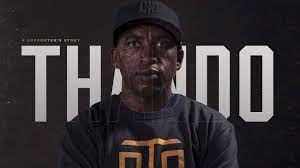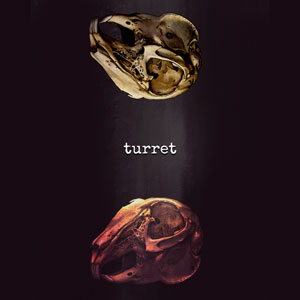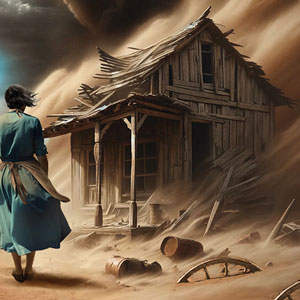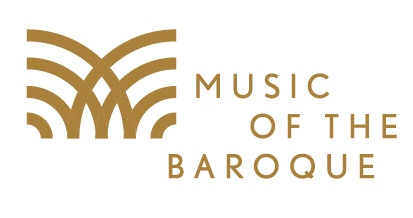
 “Thando” is a film about black queer love, created, produced, and directed by Elijah McKinnon and co-produced by Tutu Zando. Named after the Zulu word meaning universal love, “Thando” takes place in South Africa, where Reza and Masé accidentally meet at the home of a mutual acquaintance in Johannesburg and get to know each other. The film, shot on location, is a highly poetic expression of sexuality and sexual feelings among people who identify themselves as black and queer/nonbinary. As McKinnon explained during the aftertalk, heteronormative love experiences dominate the media, and black queers and other marginalized genders and sexualities are labeled as sick or deviant in relation to the biases of the mainstream culture. “You can’t cure us; we’re not a disease,” says one of the actors. “Sometimes my body doesn’t vibrate to the same frequency as I feel inside.” McKinnon was inspired to make the film as a means of demonstrating how queer people can and should embrace their own unique sexuality. Making “Thando” was also very important for McKinnon as a means of counteracting the mainstream media’s negative portrayals and stereotypes of black men as being violent.
“Thando” is a film about black queer love, created, produced, and directed by Elijah McKinnon and co-produced by Tutu Zando. Named after the Zulu word meaning universal love, “Thando” takes place in South Africa, where Reza and Masé accidentally meet at the home of a mutual acquaintance in Johannesburg and get to know each other. The film, shot on location, is a highly poetic expression of sexuality and sexual feelings among people who identify themselves as black and queer/nonbinary. As McKinnon explained during the aftertalk, heteronormative love experiences dominate the media, and black queers and other marginalized genders and sexualities are labeled as sick or deviant in relation to the biases of the mainstream culture. “You can’t cure us; we’re not a disease,” says one of the actors. “Sometimes my body doesn’t vibrate to the same frequency as I feel inside.” McKinnon was inspired to make the film as a means of demonstrating how queer people can and should embrace their own unique sexuality. Making “Thando” was also very important for McKinnon as a means of counteracting the mainstream media’s negative portrayals and stereotypes of black men as being violent.
The movie runs the gamut from sex as masturbation to sex as meditation to sex as being a part of love and life where people feel they can and should pleasure each other. There is a lot of overt sexuality throughout that would give this film an “R” rating in a movie theater. That said, it is artistic, free flowing, and free-spirited, and its purpose is to be all-inclusive of nonconformist sexuality and gender relations. Although the pain of being queer is evident throughout, McKinnon chose to focus on its lightness and stillness and the introspection inherent in identifying as queer. Interesting costumes, especially for the dream sequences, very work well. Unusual strobe camerawork, which is meant to reveal the characters’ personal journeys, is generally quite good but loses its impact when done to excess. The editing is atypical but clever, especially the changes in aspect ratio that mark moments when scenes shift.
As the advance piece states: “This debut feature-length film asks viewers to imagine a world where Black LGBTQ+ love is simple, consensual, and free from the confines of hegemonic masculinity. “Thando” asks you to help us manifest a world that celebrates black love, vulnerability and the pursuit of joy.”
“Thando” was screened online via Zoom on April 26, 2021, and hosted by DePaul University’s LGBTQIA+ Resource Center as part of a larger event entitled (re)Defining Black Queer Love in Media. The show was introduced by Michael (Mycall) Akeem Riley, the LGBTQIA+ Resource Center coordinator. The discussion afterwards was moderated by McKinnon [who is a co-founder of Open TV (OTV)] as well as by Dr. Aymar Jéan (AJ) Christian, Associate Professor of Communications at Northwestern University, who is also an OTV producer.
For more information about this program, please visit Facebook: https://www.facebook.com/events/213974036754508
or view the embeddable trailer at https://vimeo.com/503917314.
For more information about OTV and its mission, please turn to https://www.weareo.tv/.






More Stories
“Heaven and Earth”- Music of the Baroque Reviewed by Julia W. Rath
“Escape if you can”- Bucktown awaits!
“Sunday in The Park With Porchlight”